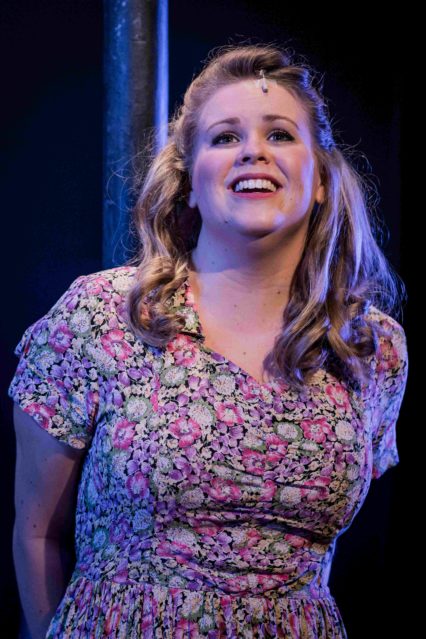
In amongst the carnage of the First World War was a blossoming of poetry and song, some frequently heard to this day but much of it now rarely performed. This lunchtime concert given by students at the Royal Welsh College of Music and Drama on the day before Armistice Day, in suitably reflective style, offered a welcome opportunity to hear a wide range of classical song repertoire of that period.
A E Housman’s collection of poems A Shropshire Lad was published in 1896, and its insights into the nature and consequences of war actually relate to conflicts in Victorian times. However the settings of these poems by so many composers of the early twentieth century have led to the collection becoming inextricably linked with the lost generation of WW1 and nostalgia for a rural idyll, a land of “lost content”.
This concert included two settings of poems from A Shropshire Lad. William Stevens, exhibiting a powerful bass voice, sang Arthur Somervell’s The streets sound to the soldiers’ tread, about the excitement of soldiers marching off to war. But the reality of war, that many do not return, is conveyed in the song’s quiet ending. This too is the theme of The lads in their hundreds, included here in George Butterworth’s recitative-like setting. Baritone Jack Bowtell held the mood of this sublime song, made all the more poignant because the composer too would be one of “the lads that will die in their glory and never be old”. There was nothing glorious about Butterworth’s own death – shot through the head by a sniper at the Battle of the Somme in 1916, his body buried in the side of the trench where he fell and never recovered.
A less familiar voice is that of composer William Denis Browne, killed at Gallipoli in 1915. His setting of a 17th century text To Gratiana Dancing and Singing was one of the few works he himself thought worth preserving. It was sung here with verve by mezzo Nicole Boardman. It is good to be introduced to composers who might easily be overlooked were it not for inclusion of their work in a themed concert such as this. So we heard songs by the Scottish composer Cecil Coles and by Cyril Rootham, a friend of the poet Siegfried Sassoon. In his introduction to Rootham’s setting of Sassoon’s poem Everyone Sang, tenor Jack Parry told us that the poet wrote this in response to hearing his comrades singing in the trenches.
The spoken introductions to the songs were welcome – personally I always like to hear recital singers speak before they sing, so as to make a connection with the audience. I would also very much have appreciated either hearing the poems read – surely an opportunity for the RWCMD’s drama students – or having the texts in the programme. As it was the songs passed so quickly that, as listeners, unless we happened to know any of the poems well, we could grasp only an overall sense of the meaning. That is not a criticism of the singers’ diction which was, generally, very good.
Including songs by Welsh composers was also welcome – indeed, it would have been invidious not to have done so! Mansel Thomas’s Y Bardd, sung by sweet-toned baritone Tomos Jones, tells the tragic story of the poet Hedd Wyn, who won the bardic chair at the National Eisteddfod 1917 but was killed in action before he could collect his prize. Tenor Huw Ynyr Evans imbued Elaine Hugh-Jones’s A Farewell – setting words by Wilfred Owen about a soldier witnessing the death of another – with an appropriate depth of feeling.
The songs in this programme were well-chosen for the theme as well as to showcase young voices in the recital hall. These seven singers all have a combination of freshness and control in their singing which makes them artists to watch as their careers progress. I will be looking out in particular for soprano Ffion Edwards. Her sheer joy as she stepped forward and embraced the audience with her warm sound in Cardiff-born Ivor Novello’s Fly Home little heart brought a lump to my throat.
Due mention must go to pianist Conal Bembridge-Sayers, who ably accompanied all the singers and had arranged Ivor Novello’s Keep the Home Fires Burning as a suitably rousing finale to a most enjoyable concert which was over all too quickly.
This concert was also notable as being the RWCMD’s first step towards being a Dementia friendly venue. This involved an adjustment to lighting levels in the hall as well as enhanced signage and more front of house staff on hand to help people, though no change to the actual performance. If this brings in more and a wider range of people to hear the fine performances on offer at the College it is surely all to the good.
Dora Stoutzker Hall
Royal Welsh College of Music and Drama, Cardiff
10 November, 2017


 Enjoyed this article? Support our writers directly by buying them a coffee and clicking this link.
Enjoyed this article? Support our writers directly by buying them a coffee and clicking this link.







